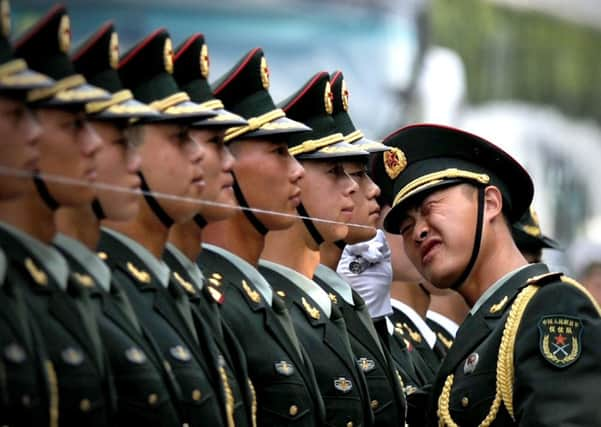China in construction crackdown


The Communist Party has been eager to project a frugal image since Xi Jinping became president last year, renewing efforts to stamp out corruption and win back public confidence after scandals involving high-rolling officials.
Under the draft laws, any construction of government offices must be accompanied by feasibility reports and design blueprints, and will require official approval before building can begin, state news agency Xinhua reported.
Advertisement
Hide AdAdvertisement
Hide Ad“Buildings with reception functions such as accommodation, meetings and banquets, including those in the name of ‘training centres’, are off limits,” it said.
The regulation will also ban loans from financial institutes, sponsorships and fundraising for unapproved construction projects.
According to the draft rules, officials and departments involved in illegal construction projects will be named and shamed, and those in serious cases will be held criminally responsible. Projects will be halted and the buildings in question will be confiscated.
China’s chief auditor on Wednesday rapped more government departments over unauthorised spending, including prominent state media outlets that are supposed to be leading a high-profile campaign to banish political excesses.
Meanwhile, the Communist Party has expelled a former senior official in charge of the controversial petitioning system, accusing him of taking bribes, adultery and other violations of the law.
The party’s anti-corruption watchdog said Xu Jie was responsible for cases involving the bureau’s office that receives petitioners “severely violating party discipline and the law”.
An investigation found that Xu had abused his position by demanding and receiving a large amount of bribes.
The watchdog also branded Xu an adulterer, without providing details.
Advertisement
Hide AdAdvertisement
Hide AdParty officials are supposed to be morally upstanding and can be punished for behaviour such as adultery.
Xu will be handed over to judicial authorities and be dealt with “in accordance with the law”.
Petitioning has deep roots in China, where courts are controlled by the Communist Party, are often unduly influenced by local governments, and can be seen as beyond the reach of ordinary people.
The system of petitions dates back to imperial times as a means for citizens to bring grievances to the attention of government officials by bypassing the legal system or authorities, especially at the local level.
Despite international criticism, petitioners who come up to Beijing to pursue their case are often rounded up by the police and forced to return to their home towns. Or worse still, they can be held in “black jails”, unlawful secret detention facilities.